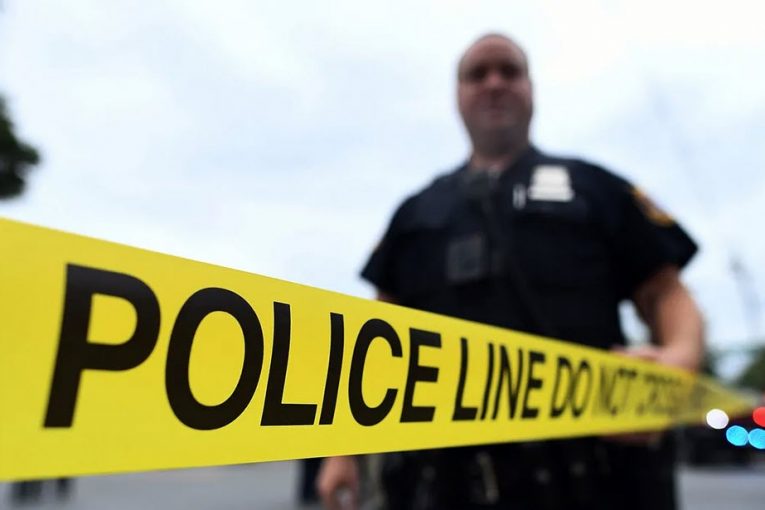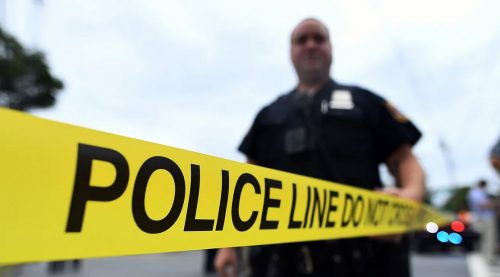

By The Vanguard
LOS ANGELES, CA – An internal Los Angeles Police Dept. report has found a body camera issue—officers delaying to turn cameras on, turning them off prematurely or failing to activate them entirely is more widespread than LAPD is admitting, according to the Los Angeles Times this week.
The confidential report indicated several divisions of LAPD are “in the habit of turning off their cameras in violation of department policy,” wrote the Times, which said, “Of 37 police shootings that have gone before the civilian commission over the last year, 25 cases had some type of body camera violation by officers who were considered to be substantially involved.”
LAPD Chief Michel Moore repeatedly said rogue gang officers in the Mission Division were flouting LAPD regulations by turning off their body-worn cameras at critical times were only isolated.
The Times quoted an internal report that said, “One possible explanation for these lapses…is a real perception” that exists among many officers that they are “somehow excused” from turning on their cameras in time to capture encounters with the public, so long as they can articulate a clear reason for not doing so.
Some supervisors are under the impression that they are only required to review officers’ body camera footage in a narrow set of situations, the report said, said the Times, quoting a division leader in the report who noted, “Anecdotally, when speaking with my supervisors including my Watch Commanders, they provided a few reasons why a ‘deep review or investigation isn’t customarily done.’”
The division leader in the report obtained by the Times added, “The overall belief by the Watch Commanders and supervisors is that aside from the requirement to review [body-worn and dashboard camera footage] for Personnel Complaints, Use of Force and Pursuit Investigations, the role of reviewing [body-worn and dashboard cameras] for Audits, Inspections, and Compliance Reviews is the responsibility of the Bureau Inspections Units or teams.
“Only someone who reads an officers’ daily logs line-by-line would figure out that a violation had occurred, the report’s authors concluded,” wrote the Times, that added “the report said that even with a greater emphasis on body camera compliance, officers would find other ways to get around the rules.”
LAPD rules don’t explicitly require supervisors to check body camera footage after they find a “deviation in the comments of [an officer’s] report,” and until recently, the report said, the department’s computer system couldn’t track whether such a review had been done, said the Times.
The report suggested the department should consider studying the “feasibility” of adding to the workload of patrol supervisors, who are already tasked with the “voluminous work of reviewing [videos] … for Use of Force and Pursuit Investigations and Complaint Intakes.”
But even though he made public assurances, Moore ordered department auditors to start reviewing officers’ body camera videos for possible violations, reported the Times, noting “Auditors from the four geographical bureaus perform spot checks roughly every four weeks (and) Supervisors are supposed to ensure that an officer’s reports reflect what’s captured by their camera and look for potential red flags, including the use of canned language in reports and unexplained camera deactivations.”
The Times said, quoting two LAPD sources who spoke confidentially, “a preliminary investigation turned up multiple body camera policy violations in a recent police shooting in Hollywood…officers opened fire after a suspect started shooting toward a group of people outside a nightclub near the corner of Hollywood Boulevard and Ivar Avenue, but no one was struck, police said. The alleged shooter, who hasn’t been identified, fled the scene and eventually eluded police in a high-speed chase.”
But police found “several so-called significantly involved officers were late to start recording or otherwise flouted the department’s body camera policy,” adding, “a 2021 study by the department’s inspector general found that nearly a fourth of LAPD officers involved in incidents where serious force was used failed to activate their body cameras in a timely manner.”
The report found that while the LAPD had ramped up inspections of body camera compliance among officers involved in serious uses of force, the department “could be doing more to ensure officers are consistently activating their cameras and keeping them powered on while in the field,” wrote the Times.
A Times examination of department reports stemming from recent police shootings found that, in many cases, officers were still failing to record their encounters with the public.
The Times wrote the “alleged misconduct in Mission came to light after a traffic stop in December: A motorist said that police had pulled him over and searched his vehicle without consent or probable cause. The motorist filed a complaint, and the ensuing internal investigation turned up other cases of Mission gang officers improperly switching off their cameras or otherwise failing to document stops.
“As the department’s inquiry continued, allegations surfaced that some officers may have stolen items from people they pulled over. The FBI is also investigating the unit for possible civil rights violations,” added the Times.